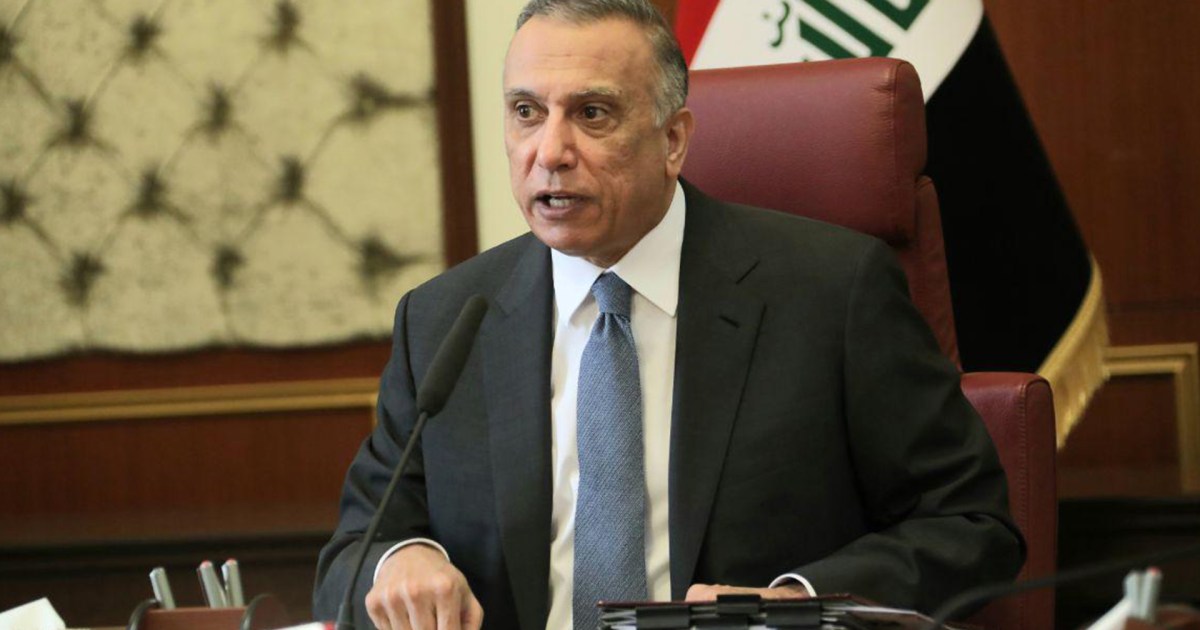The Iraqi Prime Minister, Mustafa Al-Kazemi, called on the House of Representatives (parliament) not to include political differences in the country's financial budget for the current year, which is expected to be approved in Parliament.
This came during a meeting Al-Kazemi held with members of the Parliamentary Finance Committee at the government headquarters in Baghdad, according to a statement issued by his office.
Al-Kazemi said, during the meeting, that the financial budget aims at financial and economic reform and support for vital sectors, which would address a large part of the problems of the Iraqi economy that it has been suffering from for decades.
He pointed out the necessity of adopting the principle of justice in distributing wealth among all regions of Iraq, in accordance with the principles of the constitution, and not involving political disputes in the citizen's food file and the level of services provided to him.
Prime Minister @MAKadhimi holds a meeting with members of the Parliamentary Finance Committee, during which the federal budget for 2021 was discussed, and the joint cooperation between the executive and legislative authorities was continued with the aim of speeding up its approval.
pic.twitter.com/OyyNw0MbT5
- Media Office of the Prime Minister 🇮🇶 (@IraqiPMO) February 7, 2021
On December 22, the government raised the draft 2021 budget of 164 trillion dinars (113.1 billion dollars), with a total deficit of 76 trillion dinars (32.4 billion dollars), and referred it to Parliament for a vote.
However, the head of the Parliamentary Finance Committee, Haitham al-Jubouri, stated that his committee voted in favor of reducing the size of the budget to 130 trillion dinars (89.6 billion dollars), and the deficit to 25 trillion dinars (17.2 billion dollars).
Also, differences still revolve between the political blocs regarding the share of the Kurdistan region in the financial budget.
Last December, Baghdad and the Kurdistan region reached an agreement on the financial budget, stipulating that the region hand over 250 thousand barrels of oil per day, and half of the revenues from border crossings and others to the federal government, in exchange for a budget share of 12.6%.
The agreement was included in the draft budget;
However, political blocs in Parliament reject the agreement, which hinders its passage in Parliament.
A statement by Al-Kazemi's office said that it was agreed to intensify the holding of sessions between the executive and legislative authorities, to ensure the approval of a reform budget that preserves the rights of the citizen, as soon as possible.
The differences over the budget come amid a financial crisis that the country is suffering due to the decline in oil prices in global markets since the beginning of last year, due to the repercussions of the Corona virus.
The revenues from selling oil cover about 95% of state expenditures.
The country is currently financially managed, according to the 2019 budget, as a budget for the past year was not approved due to political disputes as well.
In a televised statement yesterday, the reporter of the Finance Committee in the Iraqi Parliament, Ahmed Al-Saffar, stated that the committee had made significant changes in the budget items raised by the government;
Most notably, reducing the Iraqi presidential budget by 20%, not making any deductions from the salaries of employees and retirees, and forcing the government to re-negotiate with international oil companies, which undertake investment in oil fields within the framework of the oil licensing rounds.

